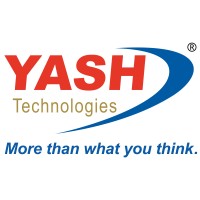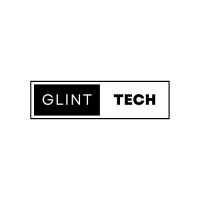

YASH Technologies
Machine Learning Engineer
⭐ - Featured Role | Apply direct with Data Freelance Hub
This role is for a Machine Learning Engineer in St. Louis, MO, on a contract basis. Requires expertise in Python, Databricks, MLflow, and RAG frameworks. Experience with LLMs, vector databases, and API integration is essential. Pay rate is "unknown".
🌎 - Country
United States
💱 - Currency
$ USD
-
💰 - Day rate
Unknown
-
🗓️ - Date
November 21, 2025
🕒 - Duration
Unknown
-
🏝️ - Location
On-site
-
📄 - Contract
Unknown
-
🔒 - Security
Unknown
-
📍 - Location detailed
St Louis, MO
-
🧠 - Skills detailed
#Data Engineering #Python #Deployment #Transformers #"ETL (Extract #Transform #Load)" #Docker #Databricks #Documentation #MLflow #TensorFlow #Cloud #Hugging Face #API (Application Programming Interface) #Langchain #AI (Artificial Intelligence) #ML (Machine Learning) #Scala #Databases #PyTorch #SharePoint #NLP (Natural Language Processing)
Role description
Role: Machine Learning Engineers
Location: St. Louis MO
Type: Contract
This position is ideal for someone eager to apply practical ML and LLM techniques in production, leveraging Databricks, Python, and modern vector database frameworks.
WhatYou’ll Do
• Develop Retrieval & Embedding Pipelines:
• Build and deploy pipelines that transform enterprise documents (Confluence pages, OneDrive files, internal reports) into structured and vectorized data for semantic retrieval.
• Use tools like Databricks MLflow, MosaicML, and LangChain to orchestrate workflows.
• Integrate LLMs with Knowledge Bases:
• Design and implement Retrieval-Augmented Generation (RAG) systems to ground LLM outputs in enterprise data.
• Collaborate with AI agents on Databricks to provide contextualized responses from internal knowledge stores.
Experiment & Optimize Models:
• Evaluate different embedding models, fine-tuning strategies, and retrieval mechanisms for efficiency, scalability, and accuracy.
• Contribute to prompt engineering, model benchmarking, and performance tracking.
• Collaborate Across Disciplines:
• Work closely with Data Engineers on ingestion and cleaning pipelines, and with Software Engineers on API integration and front-end consumption of ML services.
• Operationalize ML Solutions:
• Use MLflow to track experiments, automate deployment pipelines, and ensure reproducibility across environments.
• Contribute to testing, documentation, and continuous improvement of ML infrastructure.
What YouBring
• Solid foundation in machine learning, natural language processing, or applied AI.
• Proficiency in Python and familiarity with frameworks such as PyTorch, TensorFlow, or Hugging Face Transformers.
• Experience with Databricks, MLflow, or MosaicML.
• Familiarity with LangChain, LlamaIndex, or similar RAG frameworks.
• Understanding of vector databases (e.g., Chroma, Milvus, Pinecone, FAISS).
• Experience with API integration and data retrieval from enterprise systems (e.g., Confluence, SharePoint, OneDrive).
• Ability to collaborate in a cross-functional engineering team and communicate complex technical concepts clearly.
Bonus Skills
• Experience fine-tuning or evaluating LLMs (e.g., Llama, MPT, Falcon, or Databricks-hosted models).
• Knowledge of OCR pipelines for document ingestion and Databricks Unity Catalog for managing structured data.
• Background in cloud infrastructure, containerization (Docker), or CI/CD for ML systems.
• Prior work with embedding search optimization, semantic caching, or enterprise AI governance.
Role: Machine Learning Engineers
Location: St. Louis MO
Type: Contract
This position is ideal for someone eager to apply practical ML and LLM techniques in production, leveraging Databricks, Python, and modern vector database frameworks.
WhatYou’ll Do
• Develop Retrieval & Embedding Pipelines:
• Build and deploy pipelines that transform enterprise documents (Confluence pages, OneDrive files, internal reports) into structured and vectorized data for semantic retrieval.
• Use tools like Databricks MLflow, MosaicML, and LangChain to orchestrate workflows.
• Integrate LLMs with Knowledge Bases:
• Design and implement Retrieval-Augmented Generation (RAG) systems to ground LLM outputs in enterprise data.
• Collaborate with AI agents on Databricks to provide contextualized responses from internal knowledge stores.
Experiment & Optimize Models:
• Evaluate different embedding models, fine-tuning strategies, and retrieval mechanisms for efficiency, scalability, and accuracy.
• Contribute to prompt engineering, model benchmarking, and performance tracking.
• Collaborate Across Disciplines:
• Work closely with Data Engineers on ingestion and cleaning pipelines, and with Software Engineers on API integration and front-end consumption of ML services.
• Operationalize ML Solutions:
• Use MLflow to track experiments, automate deployment pipelines, and ensure reproducibility across environments.
• Contribute to testing, documentation, and continuous improvement of ML infrastructure.
What YouBring
• Solid foundation in machine learning, natural language processing, or applied AI.
• Proficiency in Python and familiarity with frameworks such as PyTorch, TensorFlow, or Hugging Face Transformers.
• Experience with Databricks, MLflow, or MosaicML.
• Familiarity with LangChain, LlamaIndex, or similar RAG frameworks.
• Understanding of vector databases (e.g., Chroma, Milvus, Pinecone, FAISS).
• Experience with API integration and data retrieval from enterprise systems (e.g., Confluence, SharePoint, OneDrive).
• Ability to collaborate in a cross-functional engineering team and communicate complex technical concepts clearly.
Bonus Skills
• Experience fine-tuning or evaluating LLMs (e.g., Llama, MPT, Falcon, or Databricks-hosted models).
• Knowledge of OCR pipelines for document ingestion and Databricks Unity Catalog for managing structured data.
• Background in cloud infrastructure, containerization (Docker), or CI/CD for ML systems.
• Prior work with embedding search optimization, semantic caching, or enterprise AI governance.






